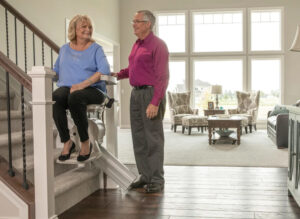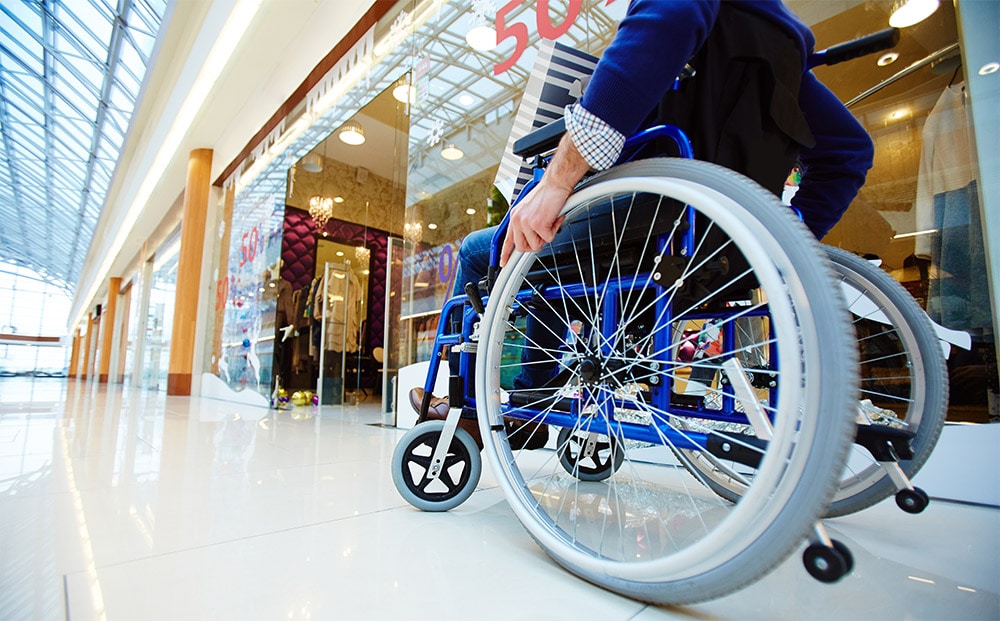

The American with Disabilities Act (ADA) requires businesses to make accommodations for those with recognized disabilities, however, this is only if their business falls within the scope of these laws. If your business falls within the scope of ADA compliance eligible and you do not comply, there can be legal ramifications including lawsuits, fees, settlements, public relations issues, even construction for your facility.
There are a variety of facets within ADA laws, including prohibiting discrimination during employment as well as public accommodations. However, even within the Title I of ADA compliance laws (cannot discriminate against employees and potential new hires based on disabilities) and Title III (discriminate against a customer based on disability), there are exceptions that allow for certain businesses to be exempt from these laws.
For Title I, if a business has less than 14 full-time employees or in only in business 20 weeks (or less) a year, they do not have to comply with Title I. If a business is federally recognized as entirely owned by a Native American, they are also exempt from Title I, as are tax-exempt private membership clubs.
Only businesses that are considered “public accommodations” are required to comply with Title III. This includes hotels, restaurants, bars, retail outlets, banks, health care providers, business service offices such as accountants and attorney offices, public transportation, gyms, social service centers, schools and recreation venues. In general, a business that regularly services the general public is considered a public accommodation and must comply. Private clubs and religious organizations are exempt.
Should your business be required to adhere to ADA compliance laws, Patriot Mobility’s team of highly trained mobility specialists can assist you with ensuring your facility is ADA compliant for customers and employees with mobility limitations. We understand the guidelines necessary for ADA compliance including dimensions, clearance, materials, and routine maintenance requirements for your commercial space.
Wheelchair ramps are defined by the ADA as a sloping route constructed with a slope greater than 1:20 rise. For adequate ADA compliance, your wheelchair ramp must have a maximum slope of 1:12 and a be a minimum of 36 inches wide. All edges must be protected from the possibility of anyone slipping off, handrails on both sides (depending on their rise) and the landing at either end must be level and 60 inches long and 5 square feet.
Handicap accessible vehicles are already ADA compliant when up fit, however, parking is. Parking spaces are required to be at least 132 inches wide, unlike standard parking spaces which are normally only 96 inches wide. The width of the spaces does not include the required 60-inch adjacent access aisle requirement. There are ADA Accessible Guidelines (ADAAG) for commercial transportation vehicles, however, which applies to buses, trains, airplanes and even taxis. Commercial ADA compliant vehicles must have a boarding device of either a lift or a ramp. Lifts must be designed to load at least 600 lbs and accommodate a wheelchair measuring 30 inches by 48 inches. They must also provide seat belts or shoulder harnesses and have an emergency method of lower and stowing in case of a failure. Lifts must have barriers to prevent the wheels of mobility units from rolling off during transfer. Ramps on commercial ADA compliant vehicles must not have a slope over 1:4 when on the ground level and the overhead clearance shall be a minimum of 56 inches. The lighting withing doorways must be at least 21.52 lumen and automatically light up when the lift or ramp is engaged on the ground level.
Platform lifts can be used instead of an elevator if the area meant for transfer falls under certain conditions, it can have a platform lift. If a space is not for public use and has a maximum occupancy of 5, it may have a VPL rather than an elevator. Raised stations such as courtroom stations like jury boxes and witness stands can have a VPL. They can also use ramps if the rise is no greater than 1:12. Certain recreation facilities such as play areas, boating facilities and amusement park rides can also have vertical platform lift. It is advised that platform lifts be used only in instances where a ramp or elevator is technically infeasible or in the locations permitted in new construction.
If you have questions about ADA compliance for your commercial ramps or commercial vertical platform lifts (VPLs), please contact our mobility specialists who will be able to assist you in ensuring your business remains ADA compliant.
Click the link to view our available vans!
To help with the journey of independence. We have become an industry mobility leader from wheelchair ramps, stairlifts, mobile scooters, vertical platform lifts, scooter lifts and so many more products, we have for.
